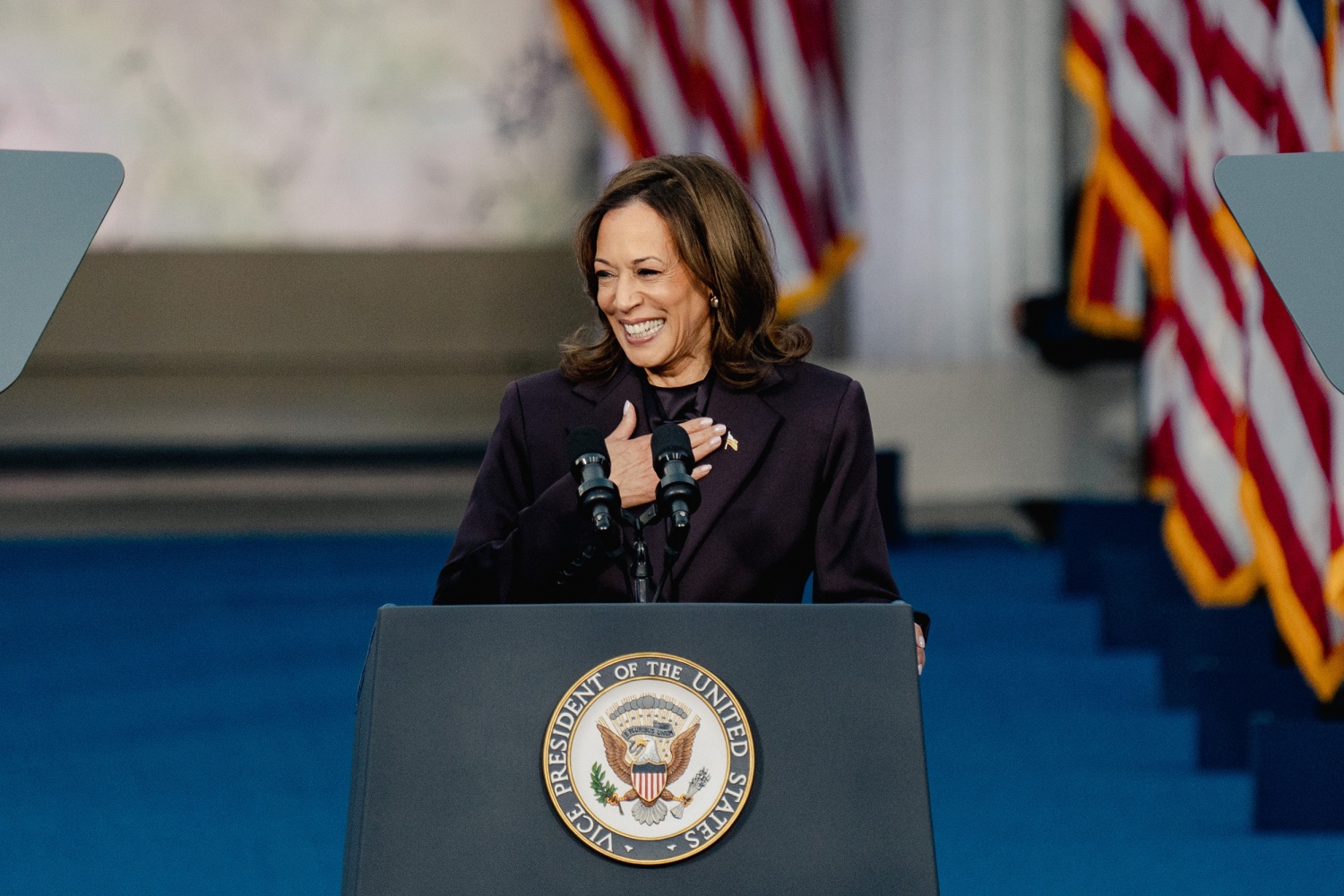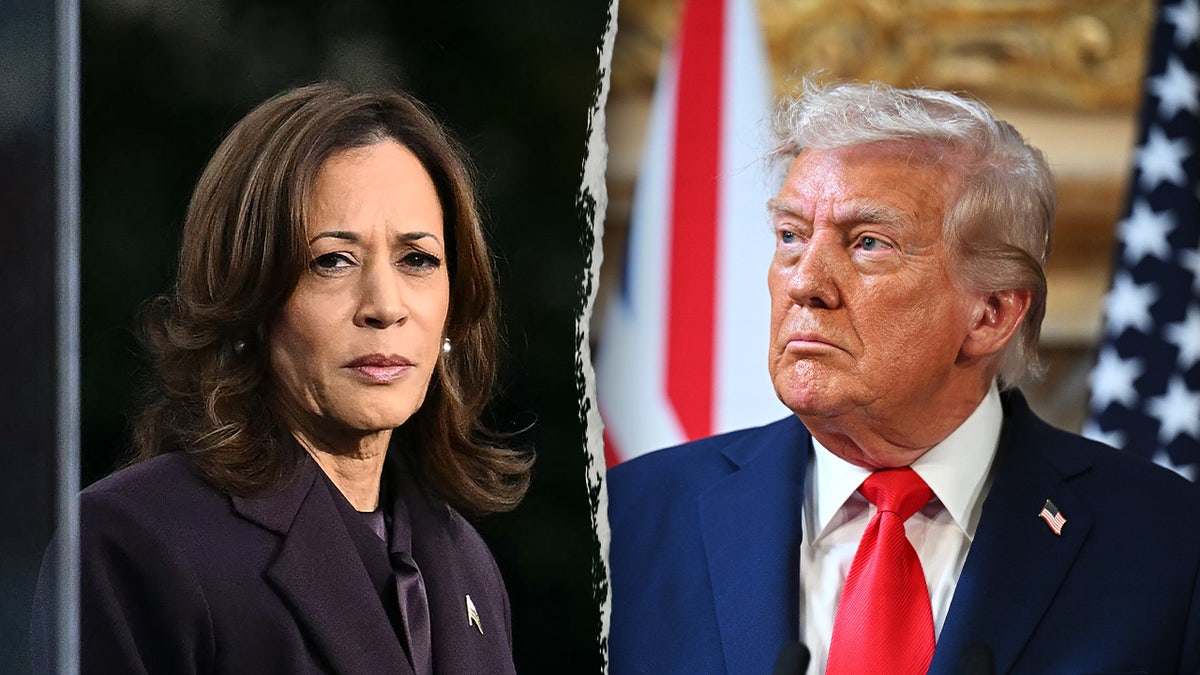
President Donald Trump has once again stirred political conversation, this time over former Vice President Kamala Harris’ newly released book in which she recounts her memories of the 2024 presidential election.
Harris, who ran against Trump in the 2024 general election, claims in her book that Trump privately lauded her during their concession call, calling her a “tough, smart customer.”
Trump, however, has flatly denied ever offering her such praise, insisting instead that while he was polite and cordial during the brief interaction, he did not see her as the formidable opponent her memoir describes.
According to excerpts published in The New York Times, Harris’ book recalls the concession phone call she made to Trump after the 2024 election. In her retelling, Harris portrays the moment as cordial despite the intense campaign.
She claims Trump praised her by saying she was “tough” and “smart,” and even complimented her name, while pledging to treat her with respect moving forward.
Harris writes that she urged Trump to consider playing a role in unifying the country after such a divisive election. But in her words, she saw that effort as “a lost cause,” pointing to Trump’s rhetoric and governing style.
The memoir paints the conversation as one of those rare moments of civility in American politics, contrasting Harris’ campaign message with what she describes as Trump’s private acknowledgment of her tenacity.
Trump strongly rejected Harris’ version of events during a Sunday morning television interview that was later posted to X. When asked if he had indeed called Harris a “tough, smart customer,” Trump shook his head.

“Not that I know of,” he said. “But I was nice to her. I met her a couple of times and I was always nice to her.”
Rather than praising Harris as she claimed, Trump described her as a disappointing opponent in the 2024 race. “I thought Kamala would have done a better job than she did in terms of running, because we really won by a lot,” he said. “And I thought she would have done better.”
Trump emphasized that his interactions with Harris were limited and always courteous, but he made clear he did not see her as a strong rival.
In Trump’s telling, Harris’ campaign did not meet the expectations he initially had for her. Despite her national profile and historic role as the first woman and first woman of color to serve as vice president, Trump argued that her general election campaign faltered.
“I thought Kamala would have been a tougher candidate,” Trump explained. “She really wasn’t. She adopted the same rhetoric as Biden, all the same talking points about democracy and threats, but it didn’t work.”
Trump has repeatedly said he won the 2024 race by a significant margin, a claim that continues to be debated among his critics and opponents.
His dismissal of Harris as a serious challenger reflects his broader narrative that Democrats struggled to mount a compelling campaign once President Biden chose not to seek reelection.
Harris’ book not only highlights the concession call but also contrasts her perception of Trump’s private demeanor with his public persona. While she described him as surprisingly respectful in the immediate aftermath of the election, Harris maintained that on the campaign trail he had been relentless, often painting Democrats as corrupt, radical, or dangerous.

She argued that Trump was unwilling to meaningfully address the nation’s divisions, writing that she had asked him to help bring people together but quickly realized such a request was futile. Her depiction paints a picture of an America still polarized by Trump’s rhetoric, despite moments of civility behind the scenes.
The Harris-Trump exchange over the concession call has drawn attention not just because of its personal details but because it highlights how the 2024 election will continue to be remembered.
Trump’s framing of the race is one of dominance—he claims victory by a large margin and portrays Harris as an underwhelming opponent.
Harris’ memoir, on the other hand, seeks to emphasize her resilience and toughness, even in defeat. By recounting Trump’s alleged compliment, she reinforces her image as a fighter who earned the respect of even her fiercest rival.
These conflicting accounts underscore the larger battle over political memory. Both figures are attempting to shape how history views their clash: Trump as a decisive victor over a weak opponent, Harris as a strong competitor who stood her ground against an aggressive incumbent.
This episode also highlights a familiar pattern in Trump’s political career: his rejection of claims that he has privately praised rivals or adversaries. Over the years, stories have circulated about Trump offering unexpected compliments in private settings, only for him to later deny them once they become public.
Trump’s denial of Harris’ account fits this mold. His brand of politics is built on strength, dominance, and refusal to concede ground to opponents.
Admitting he praised Harris as “tough” or “smart” could undermine that image. By pushing back, he reinforces the narrative that he always viewed her as a weak contender.
Media coverage has amplified the back-and-forth between Trump and Harris. Cable news networks dissected the competing claims, with analysts debating the plausibility of Harris’ account and Trump’s denial.
Political commentators noted that while Harris had little incentive to fabricate the story, Trump had strong reasons to dismiss it given his political style.
Meanwhile, the story has given both Trump supporters and Harris allies fresh talking points. For Trump loyalists, the denial is further proof that he never respected Harris’ candidacy. For Harris supporters, her retelling underscores her toughness in the face of Trump’s relentless attacks.
Republicans largely echoed Trump’s dismissal of Harris’ account. Several GOP lawmakers argued that Harris’ book was an attempt to rewrite history and frame herself in a flattering light despite her loss. They pointed to Trump’s dominance in the election as evidence that Harris was never the “tough, smart” rival she claimed.
Democrats, meanwhile, defended Harris, suggesting that Trump’s denial was typical of his refusal to acknowledge the accomplishments or resilience of opponents.
They argued that her willingness to concede the election gracefully contrasted sharply with Trump’s refusal to concede in 2020, and that her account of their call was consistent with her character.
Harris’ memoir is part of a long tradition of political figures using books to shape their legacy and influence public perception. By including the anecdote about Trump’s concession call, she inserts herself into the narrative of the 2024 election not just as a defeated candidate but as a respected adversary.
For Trump, denying her claim is equally about legacy. He wants to ensure that history records the election as an overwhelming victory against a weak opponent, not as a competitive race where he privately acknowledged his rival’s strength.
One of the most notable aspects of Harris’ account is her claim that she urged Trump to help unify the country. The idea of unity has been a recurring theme in American politics, often raised in concession speeches or inaugural addresses.
Harris’ suggestion that she made this appeal, and her belief that it was a “lost cause,” speaks to the deep divisions of the moment.
Trump’s response, emphasizing his victory and Harris’ weakness, suggests that unity was never a priority in his framing of the election. Instead, his focus remains on reinforcing his dominance and energizing his base.
The disagreement over what was said during a single phone call may seem minor, but it reflects broader tensions that will shape the political landscape moving forward.
For Harris, the anecdote supports her broader narrative of resilience and toughness. For Trump, denying it supports his image as a leader who never backs down or concedes respect to opponents.
As both figures remain active in American politics—Trump as a central Republican figure and Harris as a leading Democratic voice—their competing versions of history will continue to influence public perception. The 2024 election may be over, but the battle to define its legacy is ongoing.
The clash over a concession call has grown into a political flashpoint, with Kamala Harris claiming she received unexpected praise from Donald Trump, and Trump insisting no such words were ever spoken. At stake is more than just personal pride: it is the narrative of an election that will be debated for years.
Trump insists Harris was a disappointing rival, someone he defeated with ease, while Harris insists she was a tough, smart competitor whose strength was recognized even by her opponent.

Both accounts reflect their broader political brands, and both will continue to shape how Americans remember the 2024 contest.
In the end, the truth of what was said in that private phone call may never be fully known. But the competing versions reveal much about the two figures: Trump, determined to project dominance at all costs, and Harris, determined to claim toughness and resilience even in defeat.


-1750230985-q80.webp)

